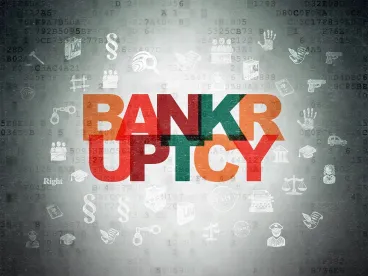I sense a sea change in the recent Delaware decision in Intervention Energy Holdings, LLC, 2016 WL 3185576 (6/3/16), refusing to enforce a bankruptcy proofing provision of a Delaware LLC’s operating agreement. Until recently, the trend had been to accept the fundamental principles of bankruptcy remoteness, although courts sometimes found ways to avoid honoring anti-bankruptcy devices in specific cases. In contrast, Intervention Energy Holdings slices to the core and relies upon the anti-bankruptcy purpose and effect of the provision to invalidate it on public policy grounds.
Common bankruptcy proofing devices are based on pretty technical legal points. For example, to block a voluntary bankruptcy filing by a corporation or other artificial entity, the techniques focus on what it takes for an artificial entity to undertake an effective voluntary action. Since bankruptcy courts look to the underlying state corporate law to determine whether a corporate bankruptcy filing is a valid corporate action, modern anti-bankruptcy provisions either deprive the entity of the power to file bankruptcy or of the ability to “decide” to file bankruptcy. The provision at issue in Intervention Energy was the latter type and operated by giving the lender a “golden share” – a single membership unit (out of 22,000,001 units) issued for $1 that had veto power over the decision to file bankruptcy. In a world where state corporate law governs, there are limited avenues to attack such provisions.
An obvious line of attack is fiduciary duty for those situations where the lender uses its veto power to block a bankruptcy filing that is in the corporate entity’s best interest. However, Delaware permits the members of an LLC to contract away their fiduciary duty liability. See 6 Del. C. § 18-1101(e). Thus, when the lender moved to dismiss Intervention Energy’s voluntary petition, it probably expected an easy victory.
Rather than engage in an analysis of the state law of fiduciary duty and the extent to which it can be waived, Judge Carey jumped directly to federal bankruptcy policy. He asserted a very forceful view of its anti-waiver principle that voids a provision whose sole purpose and effect is to give a creditor ultimate authority over the debtor’s right to file bankruptcy. While Judge Carey added a few other qualifications, his focus on purpose and effect means that Intervention Holdings does not merely raise some technical point that must be drafted around in the next iteration of bankruptcy proofing. Instead, it represents a frontal attack on the very concept that a corporate entity can waive or give away its right to file for bankruptcy protection.


 />i
/>i

